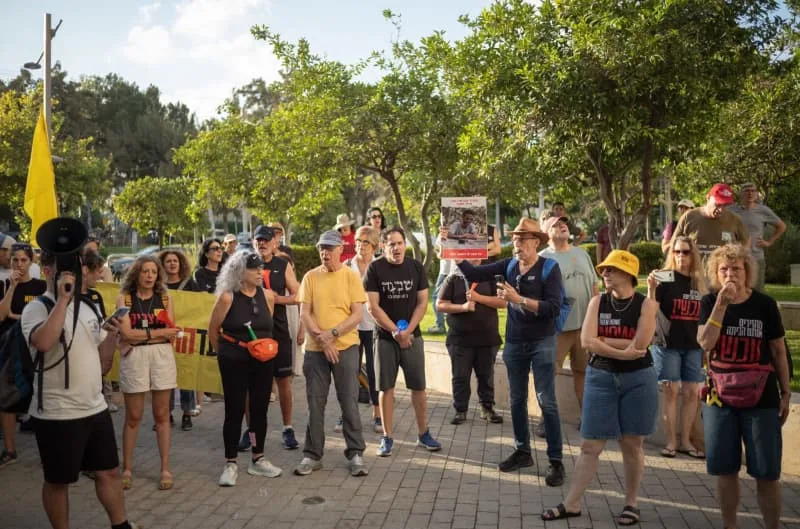On Sunday, Israelis organized significant protests and strikes demanding the release of hostages held by the Palestinian Islamist group Hamas in the Gaza Strip. This demonstration took place nearly two years after the initial abductions. Activists blocked roads across the nation, including a key highway in Tel Aviv, while waving blue-and-white Israeli flags alongside yellow flags that symbolize solidarity with the captives.
Demonstrators urged the government to cease military operations in Gaza, negotiate a deal for the hostages’ release, and reverse its recent decisions to escalate military activity in Gaza City. The Hostages and Missing Families Forum, representing the families of those still in captivity, called for a nationwide strike to align with the beginning of Israel’s work week.
Families Demand Action
Einav Zangauker, whose son Matan is one of approximately 20 surviving hostages still held by Hamas, expressed determination at a rally on Saturday evening. “We will bring the country to a standstill,” she stated, highlighting the urgency of their cause.
While the protests gained momentum, the powerful Histadrut trade union federation chose not to participate in the strike, a decision that raised questions among some demonstrators about the broader support for the hostages’ families.
At the Tel Aviv rally, the sister of a Nepalese agricultural student, who was abducted during the Hamas-led attacks on October 7, 2023, spoke publicly for the first time. Struggling to hold back tears, she revealed that her family has received no sign of life from him for nearly two years. This personal testimony underscored the emotional toll on families affected by the conflict.
According to reports, during the attacks by Hamas, approximately 250 hostages were taken. Currently, it is believed that around 50 hostages remain in Gaza, with about 20 confirmed to be alive. The situation continues to elicit strong reactions from the public as families campaign for action and the release of their loved ones.
As protests unfold, the call for an end to the ongoing conflict in Gaza gains increasing urgency, reflecting the deep-seated concerns of those impacted by the hostage crisis.
